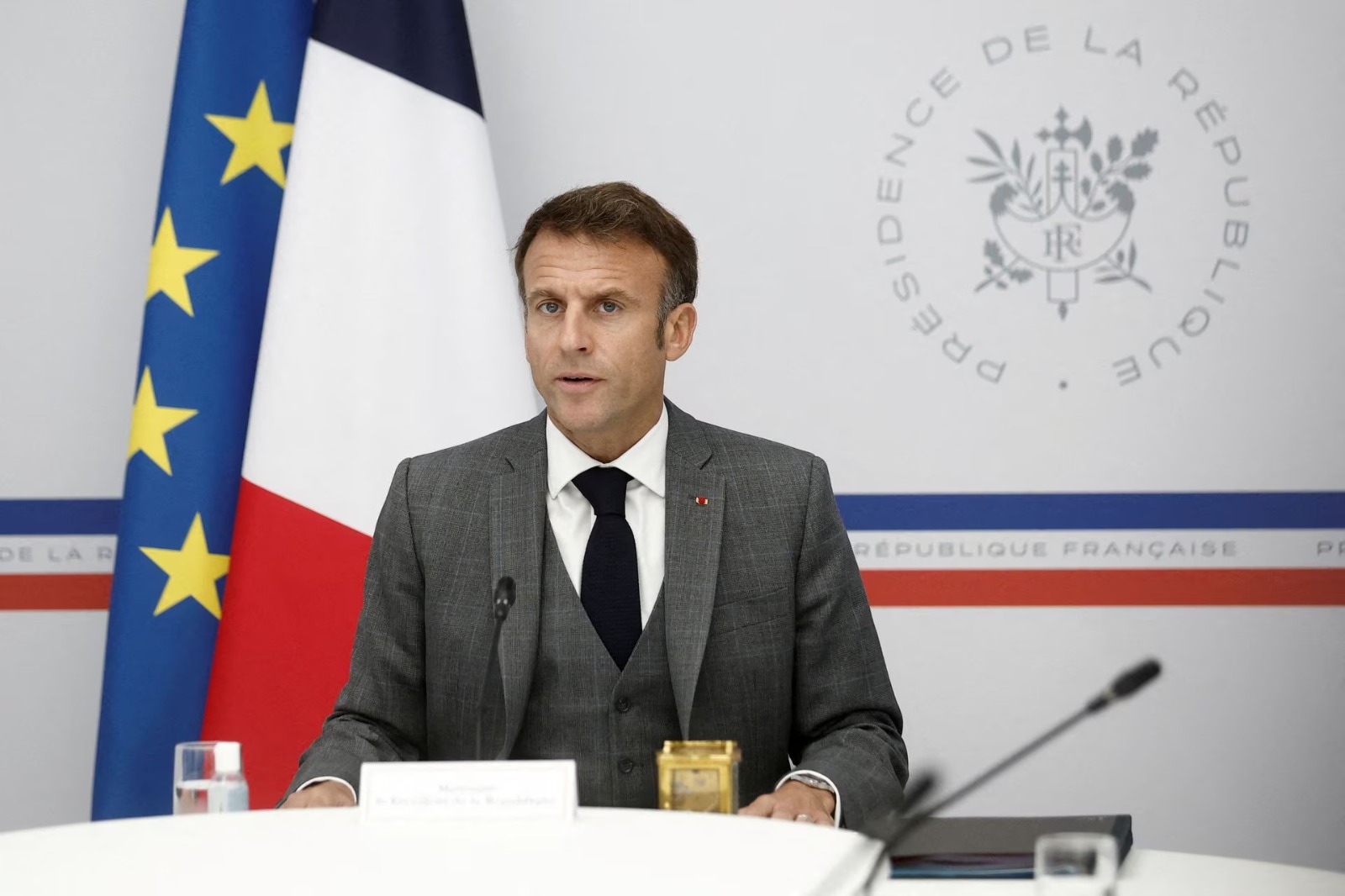French President Emmanuel Macron’s visit to Israel has taken center stage as the conflict in Gaza continues to escalate. His arrival at Tel Aviv’s Ben Gurion airport on Tuesday morning marks a significant moment in the ongoing turmoil in the region. Macron’s visit comes more than two weeks after Hamas fighters stormed into Israel, resulting in a tragic loss of life, including 30 French citizens. Here’s a closer look at why Macron is in Israel and what his visit entails.
Macron’s Four-Point Plan
Emmanuel Macron has arrived in Israel with a comprehensive four-point plan, aiming to address the pressing issues in the ongoing crisis. The French President is determined to prevent further escalation of violence, secure the release of remaining captives in Gaza, ensure Israel’s security, and work toward a two-state solution. In a region marred by conflict, Macron’s visit signifies France’s commitment to seeking lasting peace.
A Show of Solidarity
Macron’s meeting with Israeli Prime Minister Benjamin Netanyahu serves as a symbol of France’s “full solidarity” with Israel in the wake of the recent violence sparked by the Hamas attack on October 7. The French President aims to address not only the immediate security concerns but also the preservation of the civilian population in Gaza. He calls for a “humanitarian truce” to provide much-needed aid to a region grappling with severe shortages of essential resources.
High-Level Meetings
Emmanuel Macron’s visit goes beyond discussions with Israeli leaders. He has already met with Israeli-French nationals who have lost family members in the recent violence and with the families of captives. His schedule includes meetings with Israeli President Isaac Herzog, opposition leaders Benny Gantz and Yair Lapid in Jerusalem, and a joint press conference with Prime Minister Netanyahu. Additionally, Macron is expected to engage with Palestinian President Mahmoud Abbas, King Abdullah II of Jordan, Egyptian President Abdel Fattah el-Sisi, and leaders of Gulf nations. These interactions underscore the significance of Macron’s mission in the region.
France’s Stance on the Conflict
France’s stance on the Israeli-Palestinian conflict has been a long-standing commitment to a two-state solution. The country advocates for “Israel and Palestine, living side by side in peace and security, within secure, internationally recognized borders.” Additionally, France believes that Jerusalem should serve as the capital for both states, emphasizing the importance of shared sovereignty. However, while France claims to maintain its position, some experts suggest a shift in its stance, with an increasing focus on bilateral relationships with Israel.
France’s Relationship with Israel and Palestine
France has had a historical relationship with both Israel and Palestine. It recognized Israel shortly after its establishment in 1949 and has supported Israel’s sovereignty. In 1982, former French President Francois Mitterrand expressed the goal of creating a Palestinian state. France has also supported the recognition of Palestine as a non-member observer state in the United Nations. However, recent years have seen evolving dynamics in France’s relationships with both parties, raising questions about its alignment and priorities.
Protests in France
The conflict in Gaza has not been limited to the Middle East; it has sparked protests around the world. Thousands of people gathered in a pro-Palestine demonstration in the Place de la Republique in France, as the death toll from Israeli air raids in Gaza rose above 5,100. Notably, this was the first protest authorized by the French police among recent pro-Palestinian demonstrations in the country. Past protests faced strong police crackdowns, including the use of tear gas and water cannons, underlining the sensitivity and complexity of the issue in France.
Emmanuel Macron’s visit to Israel occurs against the backdrop of a complex and intensifying conflict, and it represents France’s commitment to finding a peaceful solution in a region fraught with tension. As the French President engages in discussions and diplomacy, the world watches closely for signs of progress toward peace and stability.
















